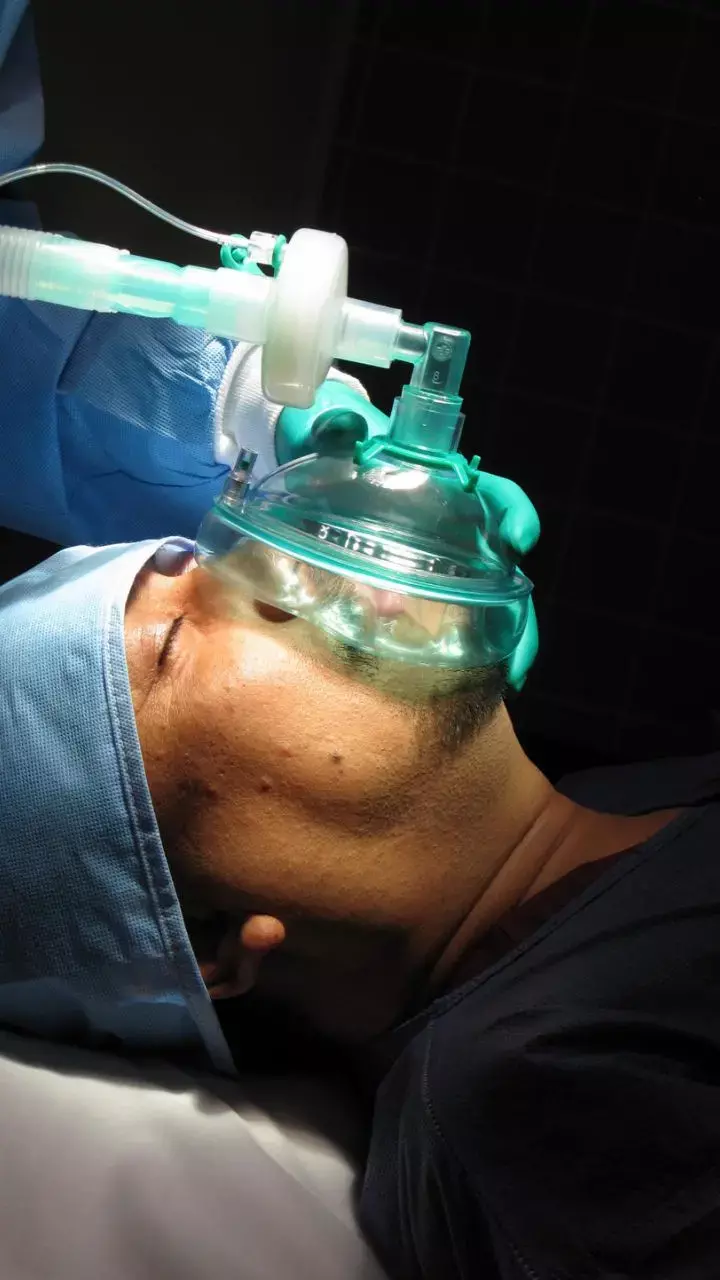- Home
- Medical news & Guidelines
- Anesthesiology
- Cardiology and CTVS
- Critical Care
- Dentistry
- Dermatology
- Diabetes and Endocrinology
- ENT
- Gastroenterology
- Medicine
- Nephrology
- Neurology
- Obstretics-Gynaecology
- Oncology
- Ophthalmology
- Orthopaedics
- Pediatrics-Neonatology
- Psychiatry
- Pulmonology
- Radiology
- Surgery
- Urology
- Laboratory Medicine
- Diet
- Nursing
- Paramedical
- Physiotherapy
- Health news
- Fact Check
- Bone Health Fact Check
- Brain Health Fact Check
- Cancer Related Fact Check
- Child Care Fact Check
- Dental and oral health fact check
- Diabetes and metabolic health fact check
- Diet and Nutrition Fact Check
- Eye and ENT Care Fact Check
- Fitness fact check
- Gut health fact check
- Heart health fact check
- Kidney health fact check
- Medical education fact check
- Men's health fact check
- Respiratory fact check
- Skin and hair care fact check
- Vaccine and Immunization fact check
- Women's health fact check
- AYUSH
- State News
- Andaman and Nicobar Islands
- Andhra Pradesh
- Arunachal Pradesh
- Assam
- Bihar
- Chandigarh
- Chattisgarh
- Dadra and Nagar Haveli
- Daman and Diu
- Delhi
- Goa
- Gujarat
- Haryana
- Himachal Pradesh
- Jammu & Kashmir
- Jharkhand
- Karnataka
- Kerala
- Ladakh
- Lakshadweep
- Madhya Pradesh
- Maharashtra
- Manipur
- Meghalaya
- Mizoram
- Nagaland
- Odisha
- Puducherry
- Punjab
- Rajasthan
- Sikkim
- Tamil Nadu
- Telangana
- Tripura
- Uttar Pradesh
- Uttrakhand
- West Bengal
- Medical Education
- Industry
Volatile anesthesia did not significantly reduce postoperative delirium compared to IV anesthesia in cardiac valve surgery

CHINA: Anesthesia maintenance with a volatile drug did not lead to substantially fewer instances of postoperative delirium among patients having on-pump heart valve surgery than propofol-based total intravenous anesthesia (TIVA), states a study published in the journal, Anesthesia & Analgesia.
After heart surgery, delirium is a frequent neurologic consequence. In the weeks following heart surgery, delirium might affect up to 52% of patients. Postoperative delirium is linked to worse outcomes, including lengthier hospital and intensive care unit stays, higher rates of morbidity and death, impaired long-term cognitive function, diminished physical capacity, and higher health care expenses. It is yet unknown how different anesthetic regimens affect postoperative delirium following on-pump heart valve surgery.
The purpose of this study was to examine the impact of volatile anesthesia and total intravenous anesthesia (TIVA) based on propofol on the occurrence of delirium following on-pump heart surgery.
To accomplish this objective, from February 2019 through January 2021, this randomized clinical trial was carried out at a university academic hospital in China. Patients were randomized to undergo anesthesia maintenance either with a volatile anesthetic (sevoflurane or desflurane) or a propofol-based TIVA for on-pump cardiac valve surgery or combination valve with coronary artery bypass grafting (CABG) procedures. The main result was the incidence of delirium in the first seven days following surgery, which was measured using the intensive care unit's confusion assessment approach. The secondary endpoints were delirium duration, delirium subtypes, 30-day mortality, pain score, significant morbidity (such as cerebral infarction, respiratory failure, and pneumonia), period of mechanical ventilation, and lengths of ICU and hospital stays. The main outcome variable was statistically analyzed by Pearson's χ2 test. The primary outcome was evaluated on 676 of the 684 patients examined (mean age, 53.8 years; 381 [55.7%] women).
Conclusive results of the study:
- In comparison to patients receiving propofol-based TIVA, postoperative delirium was reported in 76 of 339 (22.4%) patients compared to 63 of 337 (18.7%) patients receiving volatile anesthetic (relative risk, 0.80; 95% confidence interval [CI], 0.55-1.16; P =.231).
- None of the secondary outcomes showed a difference between the groups that was statistically significant.
The authors concluded that in heart valve surgery, volatile anaesthetic did not significantly lessen postoperative delirium compared to IV anesthesia.
REFERENCE
Jiang, Jia-Li MD*; Zhang, Lu MD*; He, Lei-Lei MD†; Yu, Hong MD*; Li, Xue-Fei MD*; Dai, Shun-Hui BSN*; Yu, Hai MD, PhD*. Volatile Versus Total Intravenous Anesthesia on Postoperative Delirium in Adult Patients Undergoing Cardiac Valve Surgery: A Randomized Clinical Trial. Anesthesia & Analgesia: October 27, 2022 - Volume - Issue - 10.1213/ANE.0000000000006257 doi: 10.1213/ANE.0000000000006257
Dr Kamal Kant Kohli-MBBS, DTCD- a chest specialist with more than 30 years of practice and a flair for writing clinical articles, Dr Kamal Kant Kohli joined Medical Dialogues as a Chief Editor of Medical News. Besides writing articles, as an editor, he proofreads and verifies all the medical content published on Medical Dialogues including those coming from journals, studies,medical conferences,guidelines etc. Email: drkohli@medicaldialogues.in. Contact no. 011-43720751


